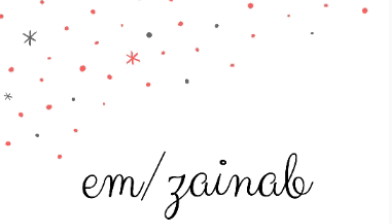
Hello, everyone!
Welcome to The Black Experience, a month long blog series through February, in honour of Black History Month, which features Black bloggers, booktubers and authors. This project aims at highlighting Black stories and experiences both in real life and in publishing, as well as showing our individual and collective struggles.
Today’s post is a fun and rather unconventional post, comparing book genres and genres of Nigerian music. This post was born of a crazy idea that I should probably have abandoned but seemed like too much fun to discard. So here’s my clumsy attempt at classifying Nigerian music as book genres.
Disclaimer: I’m not a student of music, and I’m just rediscovering love for more traditional forms of country’s music, so this post might not be very accurate. If you do know anything I got wrong, please do not hesitate to correct me. Also, most of the genres mentioned have Yoruba origins; this is because I am Yoruba, and I live while, culturally diverse, Yoruba state and these are genres that I hear often.
1. Apala, Sakara and Jùjú, as Historical Fiction
Apala, Sakara and Juju are some of Nigeria’s oldest indigenous music genres. Apala was developed in the 1920’s or at least first recorded then; Sakara and Jùjú in 1930’s. Apala was popularised by Haruna Ishola, and is an intricate genre of music. Sakara, while not being as popular as the others in the category, considerably influenced the evolution of other genres like Jùjú, Nigerian Hip Hop and Fuji.
Special mention to Highlife and Palm wine music genres, while not inherently Nigerian, are one of the oldest genres of music to be popular in Nigerian. Palmwine music even influenced the development of Jùjú.
2. Fuji, Afrobeat and Afrobeats, as Contemporary Fiction
When I think of contemporary Nigerian music, I think of these 3 genres. Fuji music, is undoubtedly, the most popular genre of music amongst Yoruba people and it has for a long while; before I was born, now that I’m grown, Yoruba people are still dancing to Fuji. Afrobeat is basically Nigeria’s signature sound since Fela, as well as Ghana’s, as it was originally developed in Ghana, but grew with both countries. Afrobeats, which is not the same of Afrobeat, is a fusion of many popular styles of African, and especially Nigerian music. Afrobeats in basically the magic of the moment.
Talking about contemporary music in Nigeria without mentioning these three is impossible.
3. Afrobeats as Fantasy and Science Fiction.
Afrobeats, like I said, is the magic of the moment. Its West Africa’s kind of magic. Like book genres, Fantasy and Science Fiction, it contains so many contributing genres and sub genres. And I’m firmly of the belief that Sci-Fi is just Fantasy without magic, you can’t my mind. Afrobeats is most Fantasy/Science Fiction genre of Nigerian music I know, in my opinion.
4. Sakara and Waka, as Literary Fiction.
Literary Fiction as a genre that’s seen to have more literary merit than others, and so its books aren’t classified like the others, and I feel it has some resemblance to Sakara and Waka.
Both genres don’t fit in with other more commercial/secular genres of music, and are tied to religions or praise. Waka is a Muslim/Islam oriented genre, and like Sakara usually has philosophical elements. Sakara and Waka are popular in their own rights, but have a characteristic feel to them which may also be found in other genres, but are still not quite the same. Just like Literary Fiction and other commercial genres.
If you could classifying your native music genres as book genres, what would they be?
|Instagram |Twitter | Goodreads | Tip me on Ko-fi


I have never seen a post like this and love how unique it is!
LikeLiked by 1 person
thank you, erik!
LikeLike